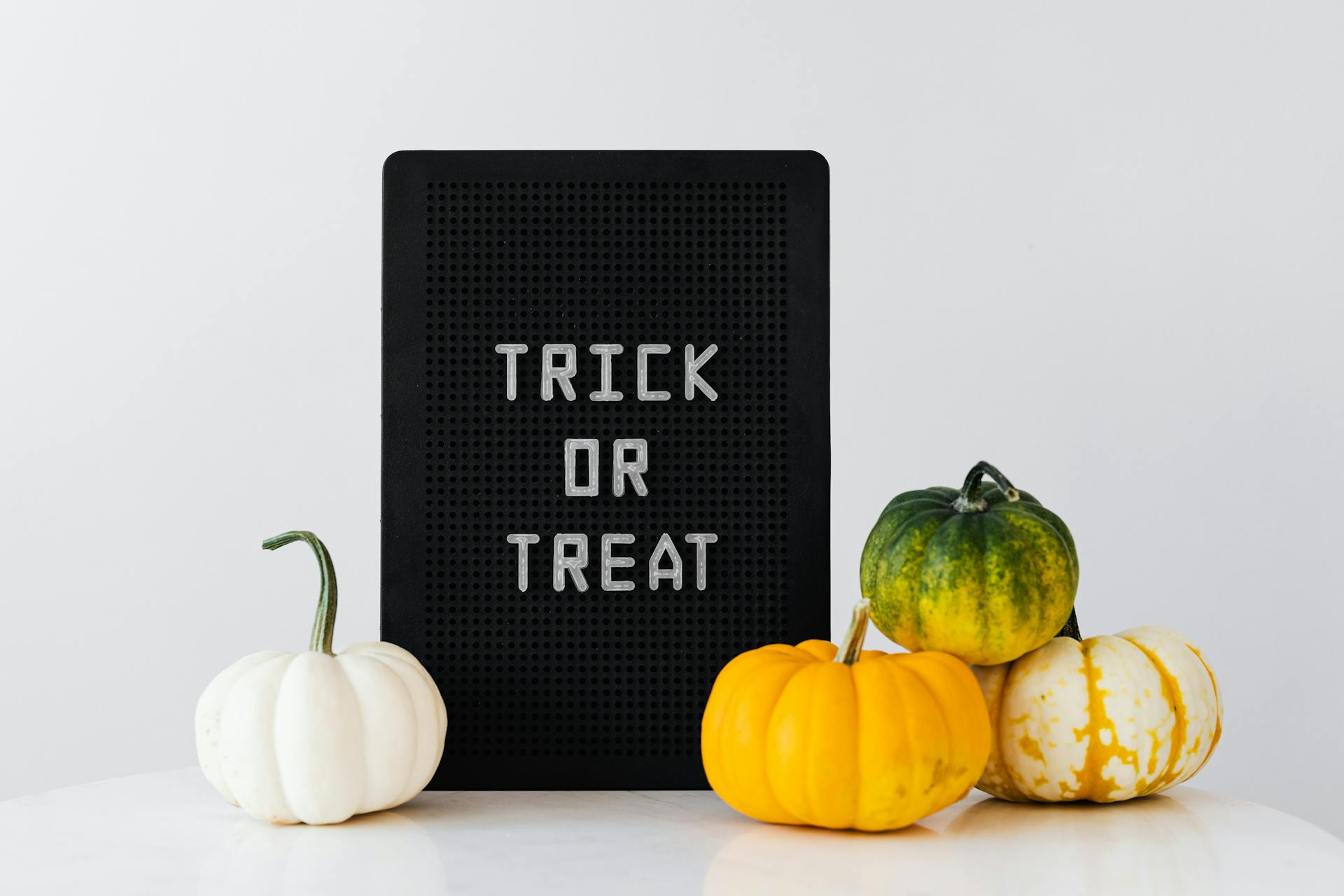
Blueberries are a nutritious snack for humans, but can they be safely consumed by dogs? The answer is yes, but with some caveats. Dogs can eat blueberries in moderation, but it's essential to be aware of their potential health benefits and risks.
Dogs can safely eat 1-2 blueberries per 10 pounds of body weight per day. This means a 20-pound dog can have 2-4 blueberries daily.
While blueberries are a healthy snack for dogs, they should not replace a balanced diet. A dog's primary source of nutrition should come from their regular meals, not from treats like blueberries.
See what others are reading: Dogs Eat Blueberry Muffin
Benefits and Health Effects
Blueberries are a nutritious and healthy treat for dogs, packed with antioxidants, vitamins, and minerals. These small purple berries are best known for their antioxidant properties, which fight harmful free radicals responsible for cellular damage.
Studies have found that adding blueberries to a dog's diet reduces the recovery time after heavy exercise, making them an excellent choice for active dogs. This can also help increase mobility in senior dogs.
For another approach, see: Dogs Eat Blueberries Muffins
Blueberries contain Vitamin C, Vitamin A, and Vitamin K, which work to improve a dog's immune system, reduce inflammation, and support the proper function of muscles, bones, and nerves.
Phosphorus, calcium, magnesium, and potassium in blueberries support bone growth and improve the body's ability to absorb nutrients more efficiently. Anthocyanins, the compounds responsible for the color of blueberries, work together with antioxidants to reduce the risk of arthritis, diabetes, cancer, and heart disease.
Here are some key benefits of blueberries for dogs:
- High antioxidant capacity including Flavonoids
- High in vitamins C and K to support your pup’s immune system
- High in fiber, nutrient-dense and low in calories
- 85% water for additional hydration benefits
Some studies suggest that blueberries possess anti-inflammatory properties due to their high levels of antioxidants. This could potentially benefit dogs by improving their overall comfort and mobility.
Feeding and Safety
Always clean blueberries by washing them under a running tap to remove any potential pesticides and dirt before feeding them to your dog.
It's essential to check for mold before serving fresh blueberries to your four-legged friend.
Frozen blueberries can present a choking hazard, so it's best to defrost and mash them before serving.
To avoid digestive problems, make sure to limit blueberries to 10% of your dog's diet.
If your dog experiences diarrhea after eating blueberries, stop feeding them immediately and contact a trusted veterinarian.
Small dogs can eat blueberries, but extra care and caution need to be exercised when feeding them as a snack due to the risk of choking.
To ensure blueberries are safe for your dog, choose organic ones or those without added preservatives and sweeteners.
Here are some guidelines for introducing blueberries into your pup's diet:
- Fresh or unsweetened frozen blueberries can be fed as a daily treat or sprinkled into prepared dog food.
- Feed 1-2 frozen blueberries at a time and keep an eye on your pet while they're eating them.
- Blueberries can be used as an excellent training treat or served as an extra special cooling treat on hot summer days.
Never feed your pup blueberries that are canned, sugared, or packed in syrup, as the sugar content is too high and may have added preservatives and sweeteners like xylitol which can be deadly.
Allergies and Considerations
Dogs can be allergic to blueberries, although it's a rare occurrence.
If your dog starts showing signs of an allergic reaction like itching, hives, swelling, or gastrointestinal distress after eating blueberries, stop feeding them immediately and consult with your veterinarian.
Some dogs may not be able to tolerate blueberries due to their unique health needs.
Always consult with your veterinarian before introducing blueberries into your dog's diet if they have any underlying health conditions or are on specific medications.
Feeding and Serving
Make sure to rinse fresh blueberries in water and check for mold before feeding them to your dog. This is a crucial step to ensure your dog's safety.
Organic blueberries are a great choice for your furry friend, as they have fewer pesticides than non-organic options. You can also choose fresh blueberries straight from the bushes for a healthy and delicious treat.
To avoid a choking hazard, you can mash or puree blueberries before serving them to your dog. If you're feeding frozen blueberries, offer 1-2 at a time and keep an eye on your pet while they're eating them.
Here are some ways to serve blueberries to your dog:
- As a daily treat
- Sprinkled into prepared dog food
- Fed one-by-one as a special treat
- Used as an excellent training treat
- Served up as an extra special cooling treat on hot summer days
Remember, it's essential to consult with your vet before serving blueberries to determine the right portion size for your dog. They can help you decide the best way to incorporate blueberries into your dog's diet.
Frequently Asked Questions
Why do dogs love blueberries?
Dogs are naturally drawn to blueberries due to their sweet taste and nutritional value. Research even suggests that wolves feed their puppies blueberries for digestive health and essential vitamins.
Are blueberries good for French Bulldogs?
Yes, blueberries are a healthy snack for French Bulldogs, providing essential nutrients and antioxidants. They make a great addition to a balanced diet for this breed.
Why can't dogs eat blueberries?
Dogs should not eat blueberries in excess due to the risk of choking and digestive upset. Moderation is key when sharing blueberries with your furry friend.
Are Frenchies allergic to blueberries?
There is no evidence to suggest that French Bulldogs are allergic to blueberries, but as with any new food, it's always best to introduce them in small amounts and monitor your Frenchie's reaction. Consult with your veterinarian if you have any concerns about feeding blueberries to your French Bulldog.
How many blueberries can a Chihuahua eat?
For a Chihuahua, 8-10 blueberries per day can be a suitable treat, but consult your vet to ensure it fits within their daily calorie needs.
Sources
- https://thepetlabco.com/learn/dog/nutrition/blueberries-for-dogs
- https://www.cornucopiapetfoods.com/blogs/news/can-dogs-eat-blueberries
- https://www.pawlicy.com/blog/can-dogs-eat-blueberries/
- https://www.purina.co.uk/articles/dogs/feeding/what-dogs-eat/can-dogs-eat-blueberries
- https://be.chewy.com/nutrition-pet-diet-tips-can-dogs-eat-blueberries/
Featured Images: pexels.com


